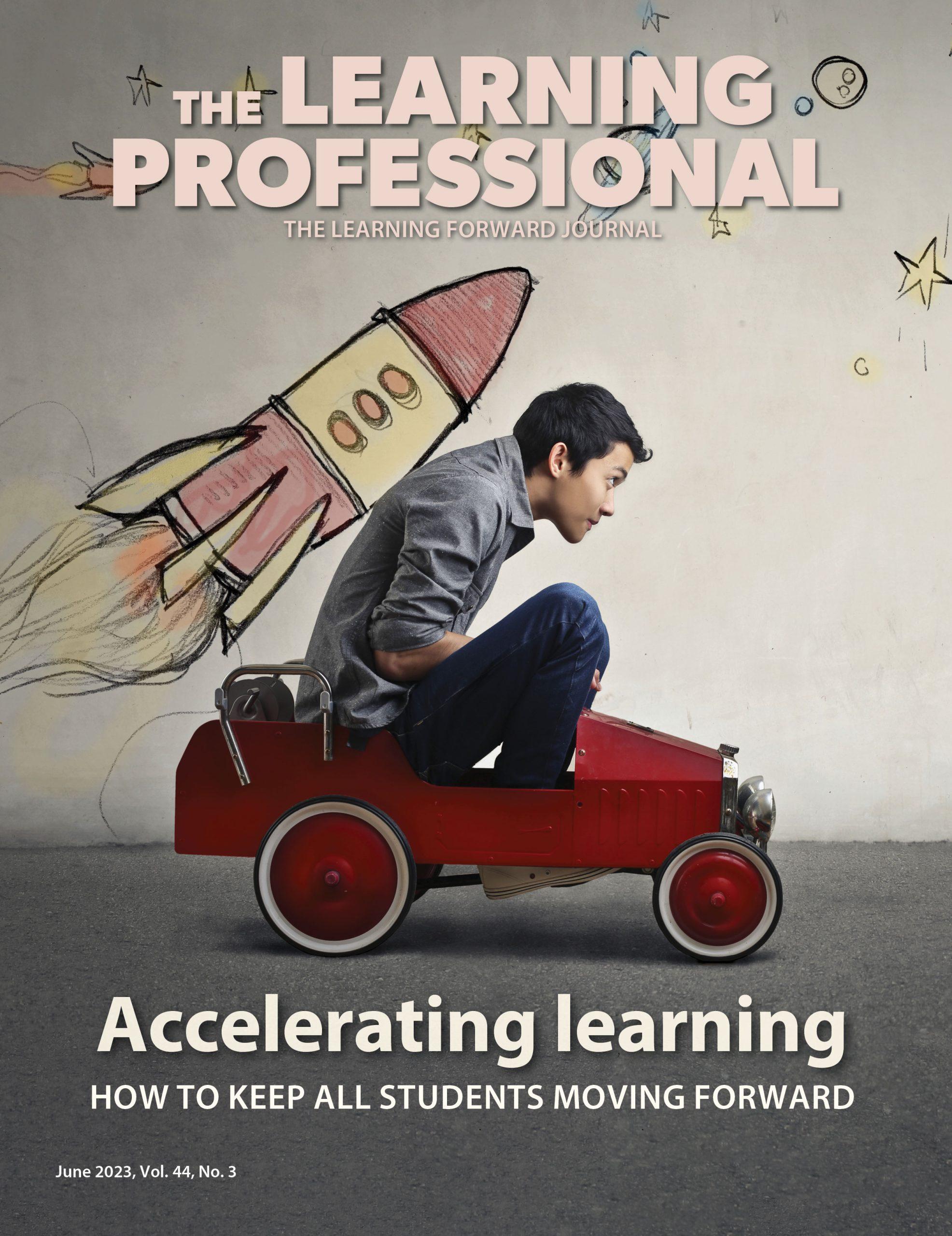Everyone at school is a learner.
To achieve continuous improvement, every professional has the responsibility to engage as a committed learner, willing to acknowledge and explore what he or she doesn’t understand. The three critical concepts in the Learning Designs standard spell out the needs and responsibilities of adult learners, and the articles in this issue of JSD help to develop deeper understandings of these concepts.
Myths about technology-supported professional learning.
By Joellen Killion and Barbara Treacy
As new technologies emerge to increase affordability, access, and appropriateness of professional learning, three commonly held myths are visible in current practices related to online learning. Each has significant implications for how state or provincial agencies, school systems, or schools support professional learning and how individual educators experience it. In addition, these myths have implications for vendors and providers of technology-supported professional learning.
Rounds process puts teachers in charge of learning.
By Vivian Troen and Katherine C. Boles
In the medical profession, making rounds is viewed as a significant and highly important form of professional learning. While medical rounds for physicians and instructional rounds for teachers — called Teacher Rounds — are not precisely the same, the comparison is a shortcut way to begin thinking about what constitutes this kind of school-based professional learning. Teacher Rounds is a strategy that helps teachers expose their classroom practices to other educators and enables them to learn from data-driven feedback offered from a stance of inquiry.
How to build schools where adults learn.
By Kevin Fahey and Jacy Ippolito
Good teachers understand that how students learn makes a difference. Similarly, in schools where adults learn, leaders understand that the learning practice of teachers, departments, grade-level teams, and schools can be in very different developmental places. Understanding the distinction between two typical adult learning practices can help leaders provide professional learning that both supports current learning and nudges faculty toward more complex and collaborative ways to work and learn.
Synergy sparks digital literacy: Redefined roles create new possibilities for teachers and students.
By Kristine Gullen and Tovah Sheldon
Students — even preschoolers — are curious and boldly confident in knowing how to access information on a multitude of devices. Why are some adults uneasy about using technology? Cultivating and intentionally using new technology takes a disposition to risk and try again. It begins by redefining the roles of teacher/student and learner/leader. When educators create inclusive, synergetic learning communities, students often share insightful perspectives and create new possibilities.
Critical thinking skills fire up teacher learning.
By Heather Donnelly and Jeffrey Linn
To be most effective, professional learning needs to focus on what matters most: thinking and learning. When educators are engaged in critical thinking about the process of learning, they are empowered to take ownership of their learning. Whether in the classroom or in everyday life, this type of thinking creates a sustainable, ongoing process that promotes metacognition. A learning model that allows for differentiation to meet educators’ individual needs can promote critical thinking through a variety of processes that are gradually released to the learner based on his or her understanding and sophistication.
Features
Know how? Show how. Experienced teachers share best practices through Ontario program.
By Lindy Amato, Paul Anthony, and Jim Strachan
The Ontario Ministry of Education partnered with the Ontario Teachers’ Federation to create a program that addresses the professional learning needs of experienced teachers. Launched in 2007, the Teacher Learning and Leadership Program operates on the belief that classroom teachers know their learning needs and the needs of their students best. Each year, the Ministry of Education provides funding for proposals from teacher-led teams seeking to examine, learn, and share the evidence-based instructional practices they are engaging in with their students.
Safe passages: Journal process inspires competence and confidence in emerging leaders.
By Karen Glinert Carlson, Kathleen Ann Harsy, and Susan M. Karas
The principal leadership program at Dominican University chose the Reflective Dialogue Journal process as a strategy to move novice leaders to proficiency and provide early intervention to help candidates at risk of failure get back on track. After two years of implementation with 60 principal interns, journal entries show that the process works. Leadership candidates gain critical support and a partner to share ideas and test theories on a regular and as-needed basis.
Building community: 4th-grade team reaches through classroom walls to collaborate.
By Sue Chapman
The actions and reflections of the 4th-grade teacher team from McWhirter Elementary Professional Development Laboratory School in Webster, Texas, offer an inside look at the self-organizing system of team-based teacher leadership. Teacher learning teams provide a structure that can focus and accelerate school-based instructional improvement initiatives. In high-functioning teacher teams such as this one, teacher leadership flourishes. This shared leadership enables teachers to reach through the isolation of their individual classroom practice and build a collaborative community dedicated to the success of all students.
Columns
Lessons from research: Study shows no difference in impact between online and face-to-face professional learning.
By Joellen Killion
Practitioners have more evidence that professional learning through online and face-to-face modalities produces similar effects for teacher learning necessary for early-stage adoption of a defined curriculum program and for student effects.
From the director:Learning is no longer an option — it’s a necessity.
By Stephanie Hirsh
The future demands change on the part of students and educators. Those changes just don’t happen without learning.
Learning Forward is the only professional association devoted exclusively to those who work in educator professional development. We help our members plan, implement, and measure high-quality professional learning so they can achieve success with their systems, schools, and students.
Categories: Uncategorized
Recent Issues
TAKING THE NEXT STEP
December 2023
Professional learning can open up new roles and challenges and help...
REACHING ALL LEARNERS
October 2023
Both special education and general education teachers need support to help...
THE TIME DILEMMA
August 2023
Prioritizing professional learning time is an investment in educators and...
ACCELERATING LEARNING
June 2023
Acceleration aims to ensure all students overcome learning gaps to do...









